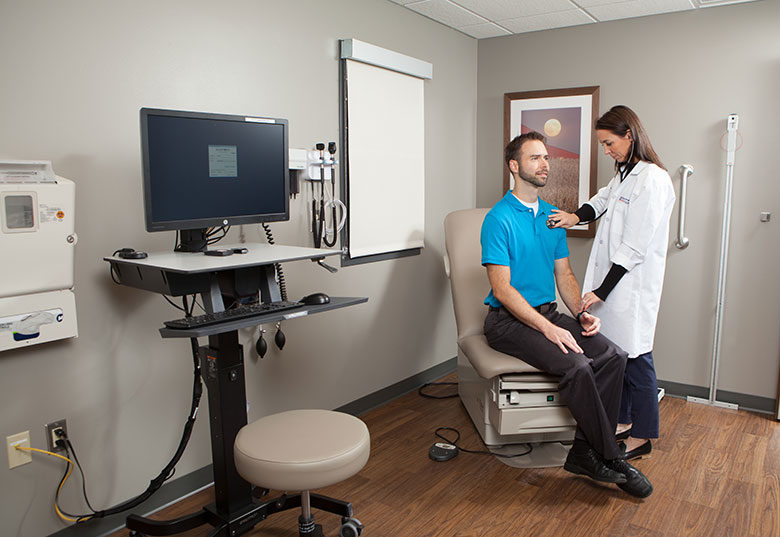One of the most effective tools for health care providers lies within the human body. Your DNA is a set of instructions holding the genetic information that makes you who you are. Variations in your genetics make you unique, but they also influence your health. Still, genetics is just one piece of the puzzle. Lifestyle, family history and many other factors determine disease risk.
At Sanford Imagenetics, health care providers recognize the impact genetics has on diagnosis and treatment. By exploring more in depth how genetics plays a role in disease development, providers gain more specific information about your disease predisposition, enabling you to make more precise health care decisions.
“The whole goal of Sanford Imagenetics was to bring awareness for genetic disease into the primary care setting. This was largely because we now have tools to better recognize disease,” said Cassie Hajek, M.D., a medical geneticist.
The impact on primary care
Understanding how your genetics may influence disease development allows your primary care provider to better understand:
- Your potential risk for developing certain genetic conditions
- The cause of conditions you may already have
- How your body reacts to certain medications
“Primary care physicians have always considered genetics when treating patients. That is the point of doing a family history. Physicians are asking, ‘Are you at an increased risk for a certain condition?’ However, today we have testing tools that were not readily available in the past,” Dr. Hajek said.
“What we have understood to be the typical presentation for an individual at risk of carrying a genetic predisposition is evolving as we do more genetic testing. Not everyone who has a genetic change fits the standard diagnostic criteria for testing. This is when an evaluation with a geneticist can be especially helpful.”
Integrating genetics
When someone is referred for genetics, the patient is triaged based upon his or her needs. A genetic counselor works closely with medical doctors to help patients understand the medical, psychological and familial implications of genomic medicine. A genetic counselor often helps assess risk, talk through various testing options and discuss this information to assist in informed decision making. The genetic counselor is also an advocate for patients and helps them navigate future health choices related to familial inheritance or genetic testing.
A patient referred to a geneticist is typically symptomatic or suspected of having a genetic disorder and needs a physical examination. It is also possible the patient is apparently asymptomatic but comes for evaluation due to family history and the need for a physical examination to determine whether he or she is symptomatic.
The appointment with a geneticist includes a visit with the genetic counselor to complete a family history and create a pedigree. Management is based on the findings during the assessment. Genetic testing may be needed or a patient may need additional diagnostic testing.
“Not every genetic evaluation involves genetic testing. We are also using a family history to help identify risk for disease and use that information to recommend how you can modify your lifestyle or use screening tools to help reduce your risk,” Dr. Hajek said.
The helpful component of testing – if it is available or indicated – is that it can help to inform physicians how to better provide you with screenings or surveillance, which may decrease your overall risk for the condition in question.
“Deciding to get genetic testing is a personal decision. It’s not right for everyone. You need to think about what these results will mean for you, how the results will impact your family or how insurance may be affected. All of these are important things to factor into the decision. But having this information can help identify risk and guide care,” Dr. Hajek said.
…
Posted In Genetics, Innovations
